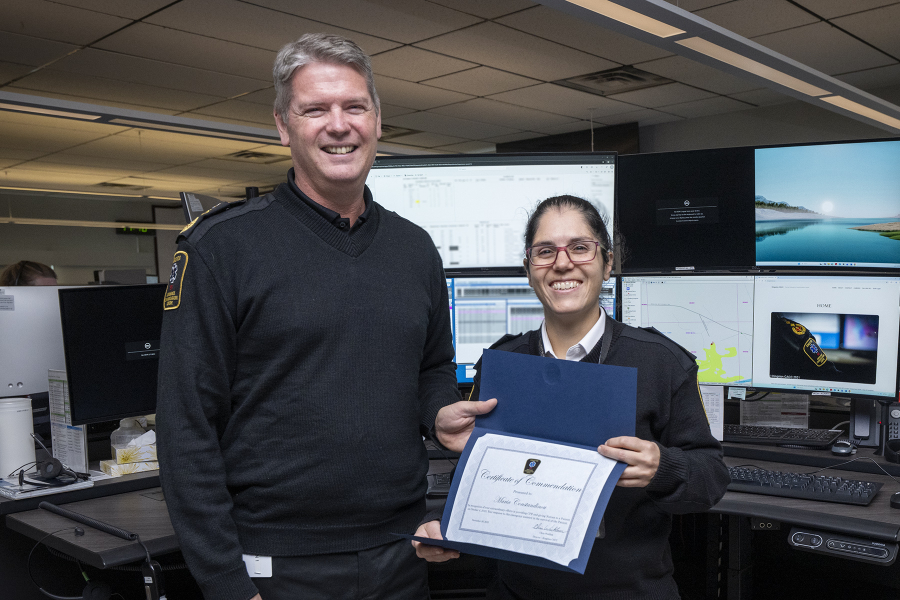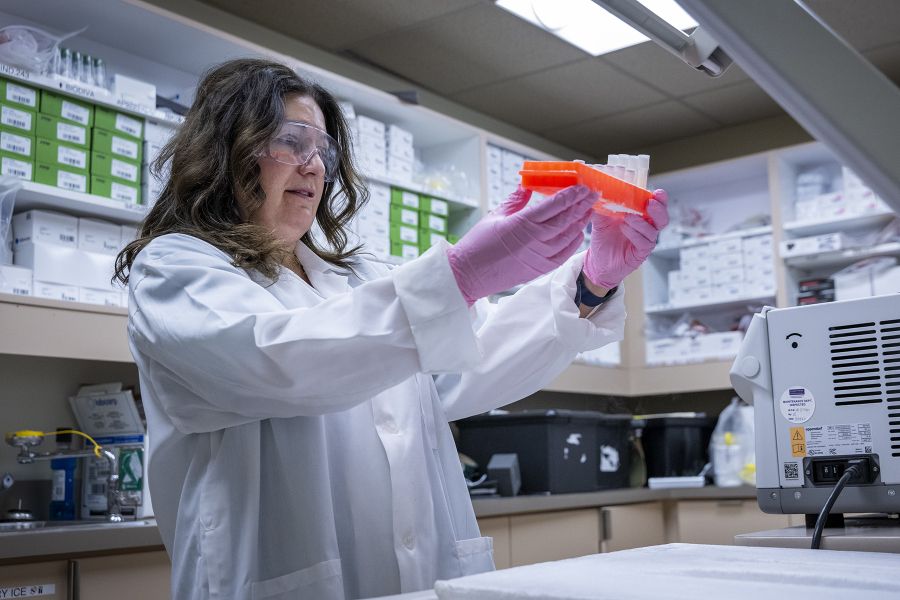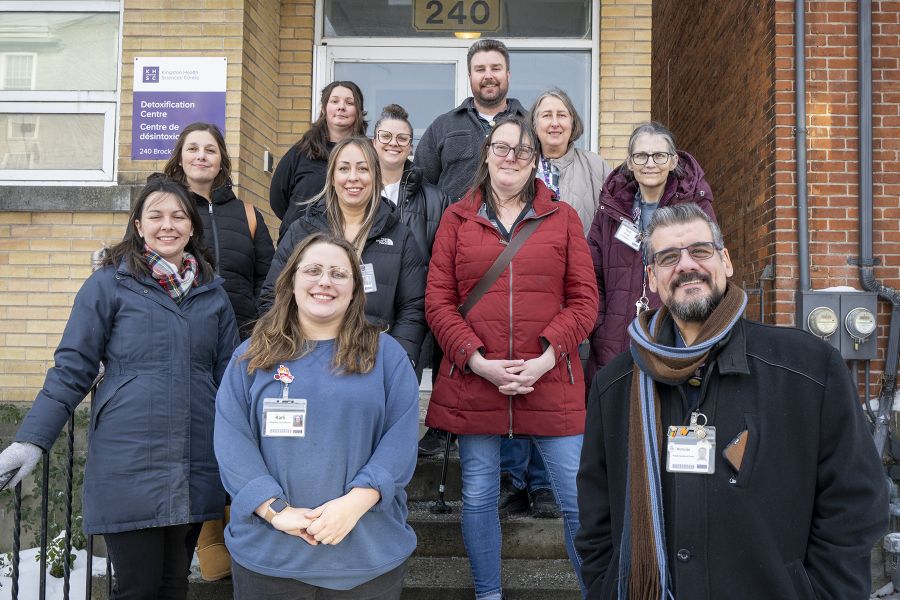Effective immediately masking is required for everyone when present on all inpatient units, in the Emergency Department (ED), the Urgent Care Centre (UCC), and the Children’s Outpatient Centre (COPC).
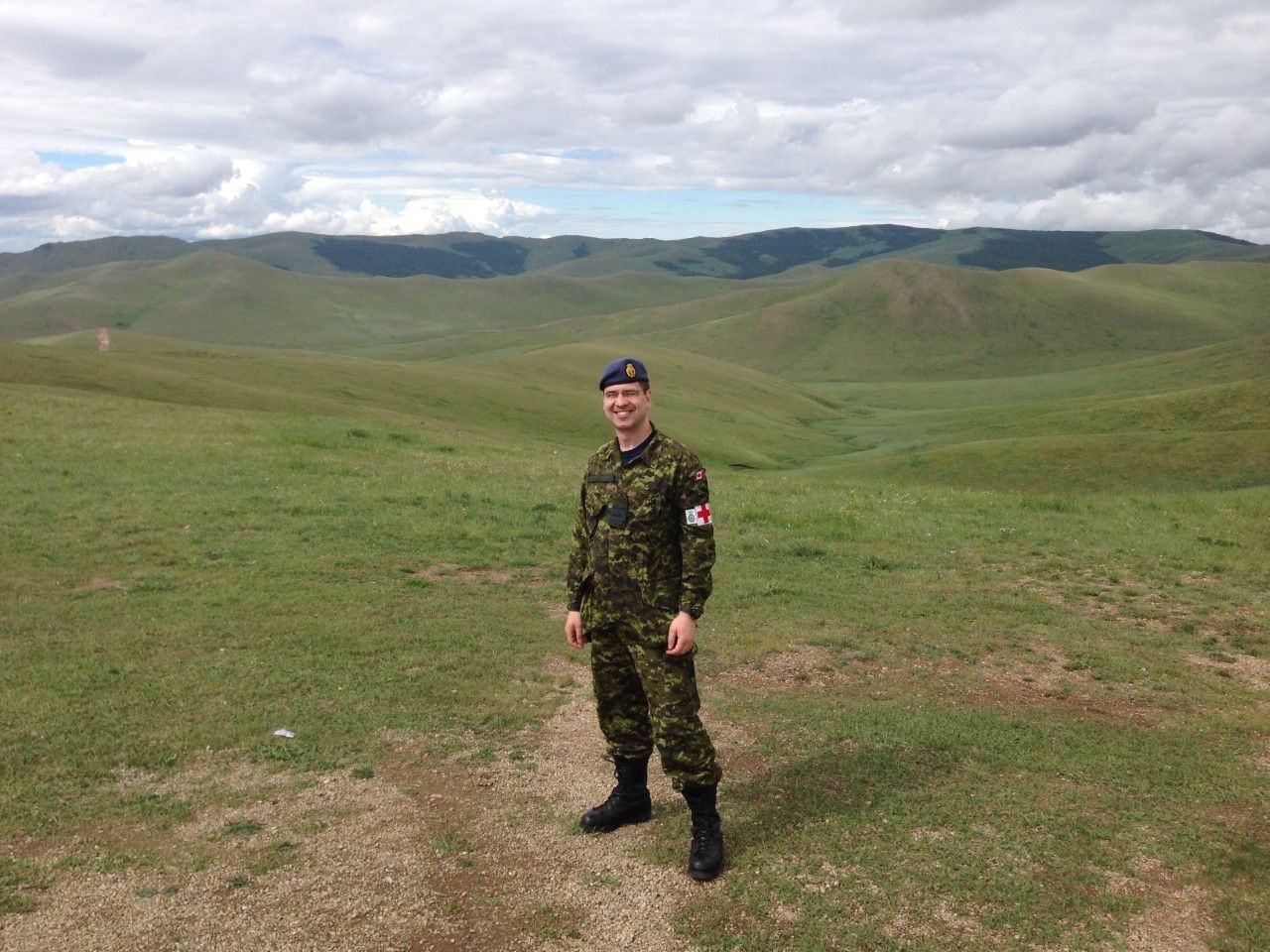
As most eyes focus on the cenotaph this November 11, several members of the Kingston Health Sciences Centre (KHSC) community will be recalling personal memories of their own military service on Remembrance Day.
One of them is Dr. Phil Laird, an Internal Medicine and Critical Care specialist at KHSC. Dr. Laird has been an active military member since he joined in 1994 and has been a medical officer with the Canadian Armed Forces (CAF) since he completed his medical training in 2008.
He currently works with KHSC through a partnership with the CAF that sees military physicians work in academic hospitals across the country to ensure their skills remain at a high level should they be required to deploy. Currently, there are a number of physicians working through this agreement at KHSC.
“We are embedded in large civilian medical centres to practice acute care to keep up our skills so we are ready to deploy,” says Dr. Laird. “We would then be able to use our skills to set up field hospitals to support large-scale conflicts. We have quite a large number of military members who come to Kingston to train with KHSC, including medical officers in training and medical residents.”
Over the course of his military career, he has supported medical air-evacuations of CAF members around the world as a flight surgeon, including support to military teams responsible for transferring COVID-19 patients from Saskatchewan to Ontario. He has also worked at CFB Trenton supporting Royal Canadian Air Force personnel, and acted as the senior medical officer in Halifax for the Royal Canadian Navy’s east coast fleet.
As for his reflections this Remembrance Day, he says he’ll be thinking of his colleagues who have returned from active conflict zones.
“We often think of those that died during the two world wars. But after our role in Afghanistan, I’m thinking of the people who bear the burden of invisible wounds from Post-Traumatic Stress Disorder (PTSD). I’ve seen the effects that war has on people and how much trauma it causes to the soldier, but also the family. That’s what I am thinking about this Remembrance Day. It’s challenging for them and I think that gets forgotten sometimes.”
That’s a sentiment echoed by security guard Alan Aitchison who recently joined KHSC after he retired from his 37-year career with the CAF.
“I lost a lot of friends over the years, one who died in Afghanistan, but many others who now struggle with PTSD after difficult deployments in the Balkans and Rwanda. I think I’ll be attending a ceremony at the cenotaph on behalf of KHSC and that’s who I will be thinking about this year.”
Aitchinson comes from a military family, his grandfather served during World War II and his father had a 42-year military career. Alan himself completed more than 13 months across two tours of duty in Afghanistan in 2003 and 2010, and was also deployed to the Golan Heights on the border of Syria and Israel, as well as Haiti to support earthquake relief efforts.
“During my military career I’ve lived in a tent in 50-degree heat in Kabul, but I’ve also lived in larger cities like Germany, Halifax, Ottawa. There’s no life like it, you never know what you’ll be doing from one day to the next.”
Having just joined KHSC in August to work in the Protection Services department, he’s using his training in his new career.
“I work across both the Kingston General Hospital (KGH) and Hotel Dieu Hospital sites and I can say my two favourite parts of this job are being part of a high-functioning team, and not knowing what each new day will bring. I really enjoy that no two days are the same, especially when I’m working in the Emergency Department at the KGH site. The clinical staff at KHSC are great and I am really enjoying working with all of them.”
Gallery
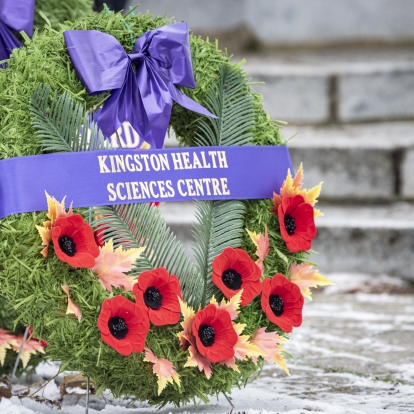
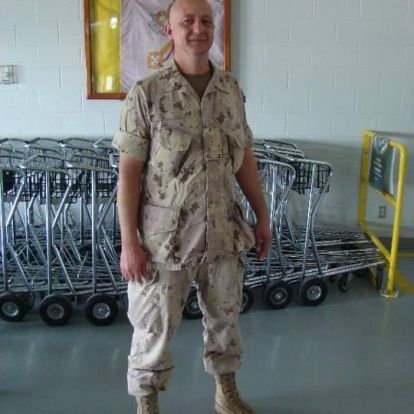
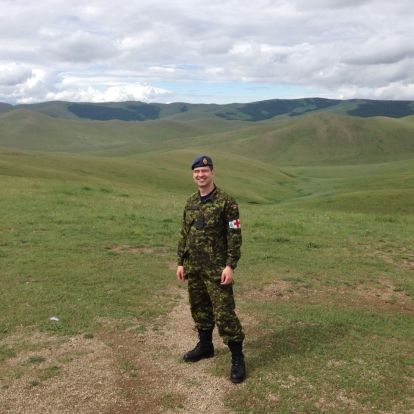
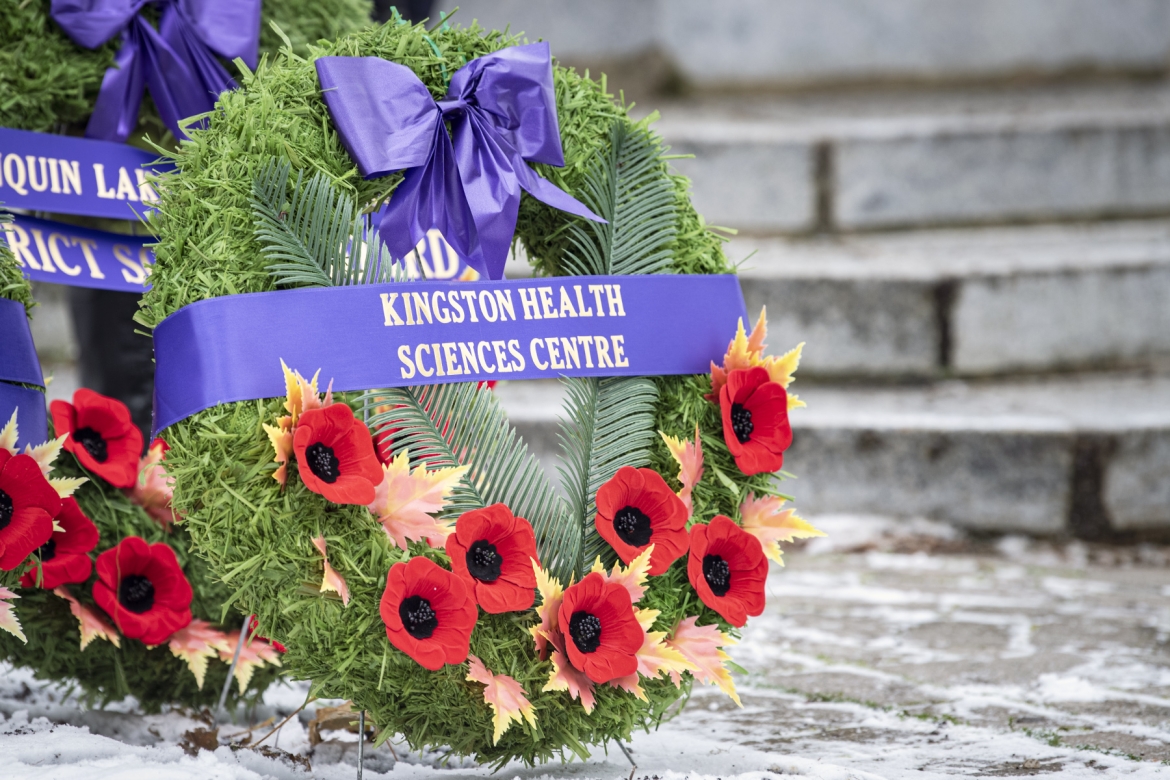
This Remembrance Day, several members of the KHSC community will be recalling personal memories of their own military service and thinking of those who died and those who have returned from active conflict zones.
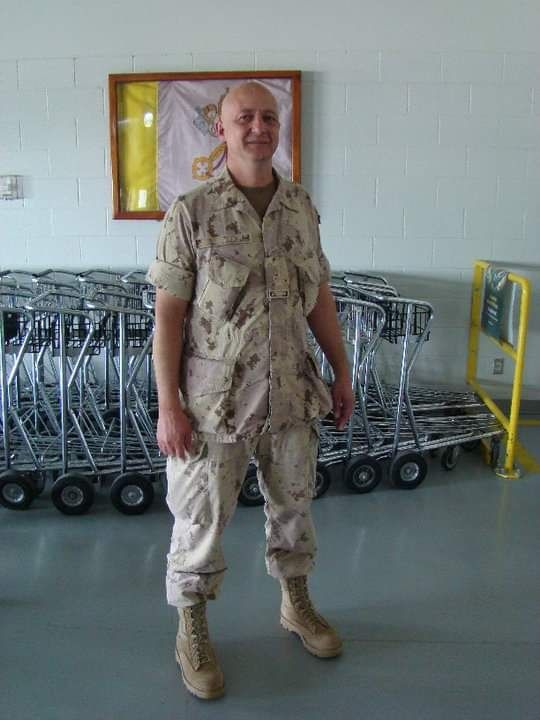
Alan Aitchinson on his way to Afghanistan in 2010.
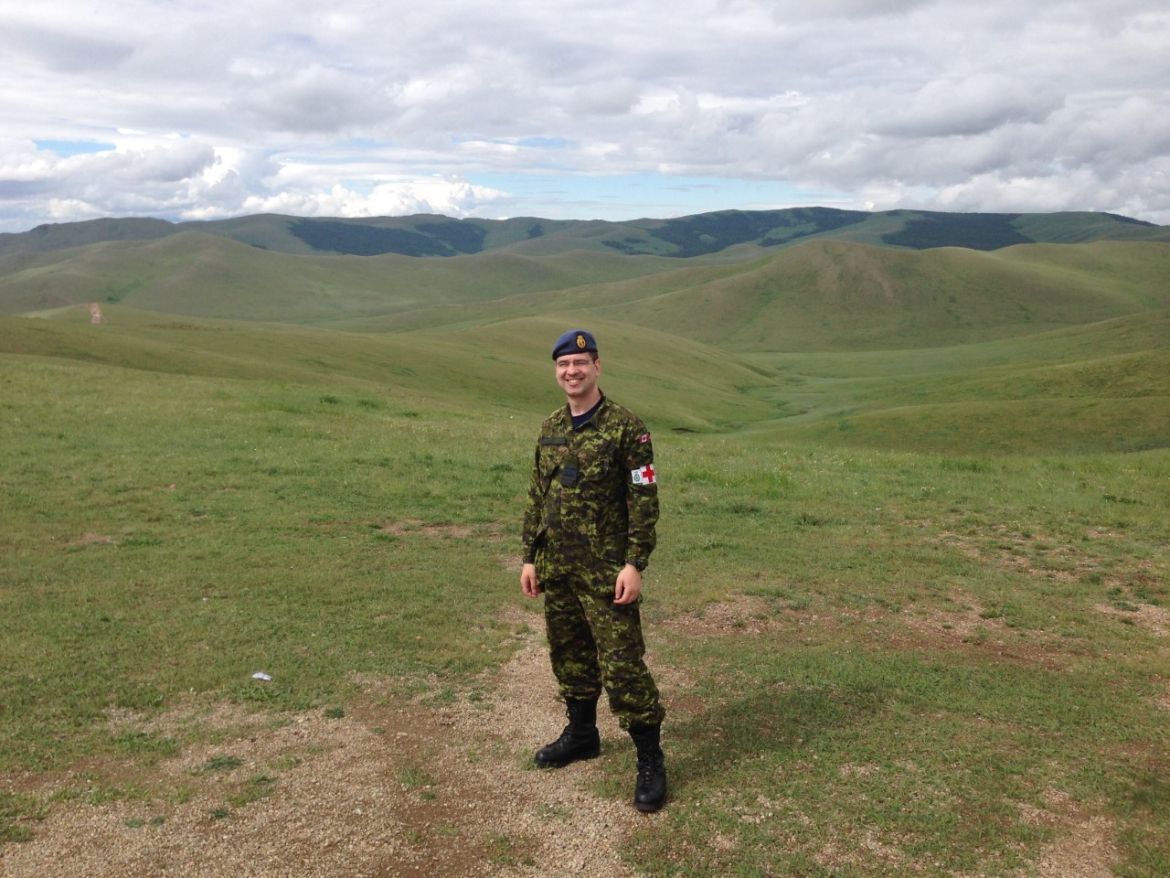
Dr. Phil Laird on a UN exercise in Mongolia in 2014.

